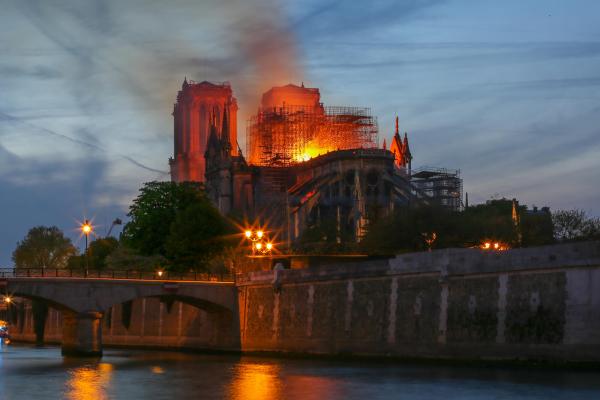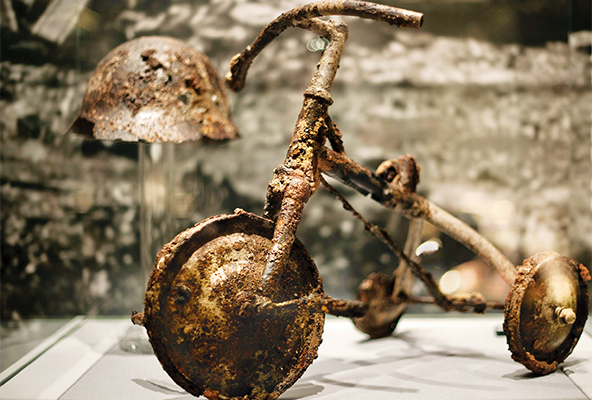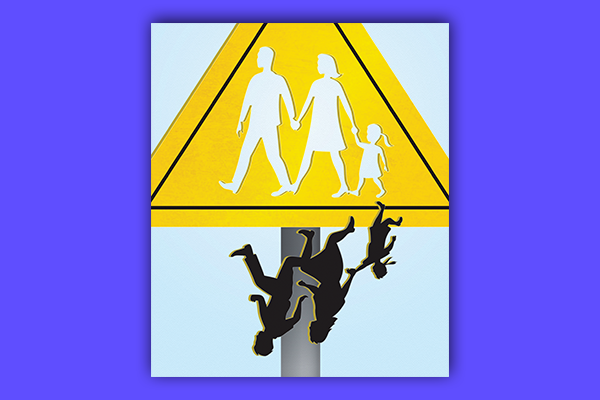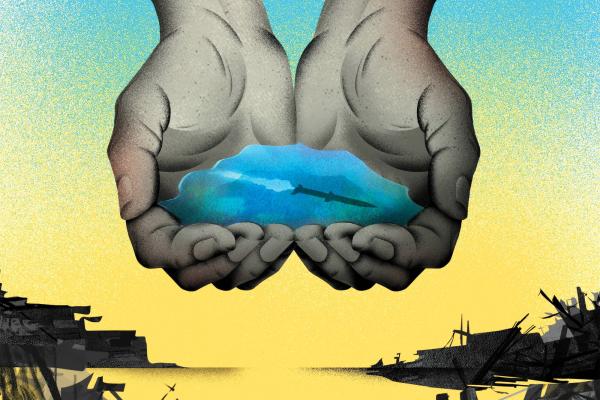JUST WEEKS before the fire, I was in front of Notre Dame Cathedral in Paris, walking around the exterior and enjoying the architecture and ornate sculptures depicting stories of the Christian faith. I didn’t go inside, and I may never have the chance because of how long it will take to rebuild Notre Dame. The iconic wooden spire and roof are gone, as experts try to assess how to support the remaining structure and make it safe. There is international support and money to rebuild, because it appears a tragic accident has destroyed a place that is considered sacred even to those who consider themselves secular.
And that is why so many of us should keep going back to why the burning of three black churches in Louisiana didn’t fill 24-hour news cycles or make us—me—stop and turn on the news.
The son of a deputy sheriff is being held without bond, accused of a hate crime in connection with the fires at St. Mary Baptist Church, Greater Union Baptist Church, and Mount Pleasant Baptist Church.
The son of a law enforcement officer.
I know now why I didn’t stop to turn on the news, why I didn’t expect the same 24-hour coverage, and why, even here in the United States, where most people will never travel to Paris, our collective gaze is moved to the fire at Notre Dame.
White supremacy.
It has taught me, and us, that a building “over there” is more valuable and sacred than the black, immigrant, and refugee churches, communities, and people here. As one who has seen Notre Dame, I will say that the architecture is breathtaking, but as a church it isn’t any more valuable, holy, sacred, or important—not if I as a Christian, we as followers of Jesus, actually believe what we say we believe. We are supposed to be one body, and when one part hurts we all hurt, but I confess I didn’t hurt the same way with my black siblings as I did with my Parisian siblings.
I didn’t see the burning of black churches as a collective loss because American values/white supremacy taught me that my individual desires to visit Europe mean more than developing an empathy that moves me to action in word and deed to grieve with my black siblings in Christ. The loss of those churches doesn’t impact my future dreams and aspirations because I dream for another chance to visit Paris, not Louisiana.
I don’t want to see the intentional hate, the action of white supremacy, because it is hard and ugly and it makes me angry and fearful. It requires me and each one of you to consider how we have bought into the lie that certain kinds of religious art and history are worth telling, saving, restoring, and rebuilding even as I live on land stolen from the Fox, Winnebago, Kickapoo, Mascoutins, Miamis, and Illinois and live as a woman who was told to bend her tongue to speak the white people’s language while taking a name that would be easier for those same white people to pronounce.
This work of justice, of bringing God’s kingdom come and will be done on earth as it is in heaven, is complicated, ugly, painful, and beautiful. I still want to revisit Paris. I want to reclaim my heart language and mother tongue. I want to continue to learn about the losses and the cost of white supremacy, particularly in the church, here in America. I know that learning will invite more pain, grief, and lament, but it also will invite imagination and hope. I hope some of you will keep moving your gaze to where Jesus is inviting us to look and see. It doesn’t have to be so far away.
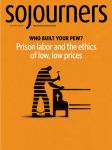
Got something to say about what you're reading? We value your feedback!
